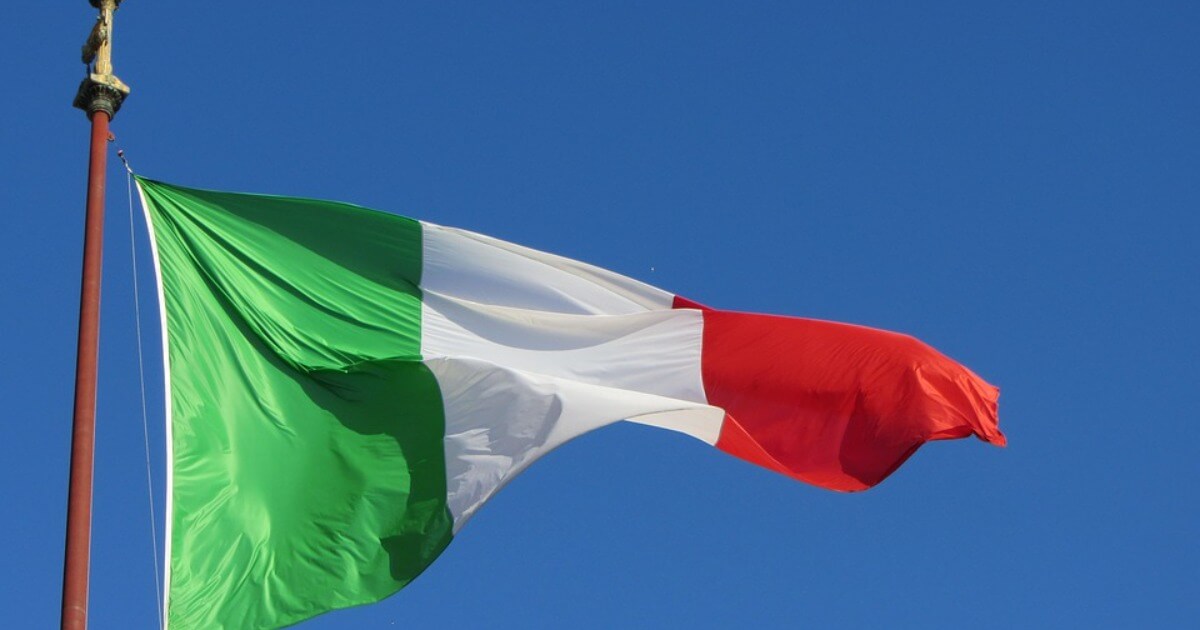Italy’s Culture Wars: A General Weighs In
A right-wing book captures popular dissatisfaction – and indirectly hits at Giorgia Meloni’s pragmatic course.
September 17, 2023

Anyone curious about the state of Italy’s culture war and its political implications need only look at the story that has dominated the past weeks. From broadsheets to the 8 p.m. news, from radio debates to Twitter, Italy’s media has been obsessing over the polemical book “Il Mondo al Contrario,” by Roberto Vannacci.
The military man
If I told you that Vannacci is an army general and that his title translates as “The World Reversed,” or “The World Upside Down,” you might already understand all that you needed to. The story, however, goes much further.
Italy’s military operations sometimes go under the radar, overshadowed by louder American, British and French interventions. Yet, with a CV stretching over four decades from the Ivory Coast to Somalia, Libya to Afghanistan and even in the Caucasus, Vannacci’s military career is a reminder of just how active Italy’s armed forces remain globally.
Self-published success
Self-published on August 10, Vannacci’s book has seen a meteoric rise and sits comfortably at the top of Amazon’s best seller list in Italy. Priced at around twenty euros, the book has sold nearly 100,000 copies. Self-publication is not uncommon in Italy – with the obvious advantage being that the author takes home all the profit. So, Vannacci, in matter of weeks, has become a millionaire.
Financial success and military background are details adding color to the surrounding political furor. The actual contents of the book, however, deal little in foreign affairs or military matters, as one might have assumed. Rather, “Il Mondo al Contrario” analyses the current state of Italy’s culture.
The world upside down
Vannacci argues that within Italy’s modern society there exists a minority, one working to subvert all that was considered “normal’ up until a few decades ago. His proposed antidote is a return to “common sense.” Remaining nebulously defined throughout, “common sense” for Vannacci is loosely seen as something passed down the ages through some ancestral wisdom.
Vannacci’s prose goes on to the sermonize on those social themes that have come to define the battleground of Italy’s culture wars: Sexuality, immigration, the nation and environmentalism. The sum of these is an expression of a strand of extreme right-wing thought which, perhaps in other countries, would not even garner much attention. The obsessive reaction to the book, however, reflects just how mainstream such ideas are in Italy today.
Blatant racism
Take immigration which, according to Vannacci, acts as the harbinger of multiculturalism with its alien values undermining the cohesion and stability of a people. Vannacci singles out Paola Egonu, Italy’s most best-known volleyball player – as well as Olympic flagbearer and even Pixar voice actor. She happens to have parents who emigrated from Nigeria to Italy.
Vannacci writes, “…. Although Paola Egonu is Italian by citizenship, it is clear that her somatic features do not represent the Italian character that can be seen in all the frescoes, paintings and statues from the Etruscans to the present day.”
There is an inevitable heavy sigh from deep within when one faces this kind of idiot racism. Italy is a boot-shaped peninsula in the middle of the Mediterranean Sea. As such, Italy’s history has been characterized by migration since the time of the Etruscans.
On the subject of sexuality, Vannacci is quite clear, skipping the need for nuance or subtlety, “Dear homosexuals, normal you are not, get over it!” Normalcy in Vannacci’s world is reserved for those families built between a man and woman. And whilst not going quite so far as being a climate denier, Vannacci parrots the now standard conservative view that the green transition must not come at the cost of growth.
Popular reception
There is a certain irony that a month before “Il Mondo al Contrario” was published, Italians were watching a different world upside down, if you will. Having grossed well over a billion dollars, the Barbie movie presented a satirical version of modern society counterposing Barbieland, in which women ruled over everything, and the real world.
Unfortunately, there is nothing except Vannacci’s title that bears resemblance to the theme of Greta Gerwig’s script. Overtly racist, xenophobic, homophobic, transphobic, bigoted and stupid, Vannacci’s small self-published book should have stayed on the shelf to gather dust.
The reception of the book is where the problem lies. Vannacci’s polemic has captured the attention of Italy’s media. It has been debated ad nauseum across broadsheet and television, at home and on social media.
Inevitably, the discussion elided from questioning not only the validity of Vannacci’s argument but to championing the marketplace of ideas and the validity of debating these extreme ideas in the first place. Few people would be opposed to open and fair debate, but there are limits – especially when it involves tolerating the intolerant.
Political reflections
Zooming out, this episode of culture wars reflects the prevailing political winds in Italy. October will mark the one-year anniversary of Giorgia Meloni’s arrival to power. Her party, Fratelli D’Italia, is the political descendant of Mussolini’s National Fascist Party. Her coalition partner, Mateo Salvini, is head of Lega, also of the far-right. Together, the two parties poll over 40%.
The right reigns supreme in Italy. But is it united? Vannacci’s book has unexpectedly exposed fissures within the ruling coalition. With its anti-immigrant, foreigner, LGTBQ+ rabidly conservative tone, “Il Mondo al Contrario,” goes against those values which have become synonymous with a certain genre of American or Atlantic socio-political values.
Praise of Vannacci by Salvini, former Mayor of Rome with a fascist history; Gianni Alemanno, and other spokespeople on the far-right, therefore acts as subtle critcism of Meloni and, in particular, her foreign policy.
The key context is the war in Ukraine, in which Meloni has maintained the course set by former Premier, Mario Draghi. She is toeing the NATO line and supporting Ukraine no matter what. Doing so bucked the tradition of Italy’s far-right having a soft-spot for Putin’s Russia and heckling the US, the EU and NATO.
Meloni’s pragmatisim
Meloni’s pragmatism in staying friendly to the EU and supporting NATO and the United States should not come as a surprise. Italy is the largest recipient of the COVID European Recovery Fund. Meanwhile, Meloni intends to present herself as a serious politician on the international stage. Incurring the disfavor of the United States would not be wise.
With Meloni locked in this delicate position on the geopolitical chessboard, others on the far-right, unbound by the weight of the top job, are able to flatter Vannacci and promote an anti-Atlanticist discourse. How successful they are and a litmus test for how popular Meloni’s foreign policy will come in the 2024 European Elections. With EU and NATO expansion, the green transition and the war in Ukraine, these elections will lay bare the divisions within the Meloni coalition.
A challenge for the Italy’s left
Whatever the result on the far-right, Vannacci’s book has aided their political battle cry insofar as it has shifted the goalposts of debate and mainstreamed far-right ideas. Looking across Europe, the trend is clear to see for all.
You see it in the rising popularity of Marine Le Pen’s Front National in France. You observe it in the United Kingdom’s Conservative Party becoming rabidly anti-immigration since the 2016 Brexit vote. You can feel it in Poland and Hungary where LGBTQI+ rights are receding more and more.
The story of Italian politics over the last 30 years includes the stagnation of the left and center-left. The old, 20th century arguments that provided ballast to Il Partito Democratico and even the Communist Party have faded into irrelevance. The political issues of modern Italy are different and here is the challenge for hungry young leftists who have progressive ideas.
In the end and with another dose of irony the popularity of “Il Mondo al Contrario,” has inadvertently provided a polemic in contrast to which a reinvigorated Italian left can better define itself. It needs to articulate its ideas of what culture, immigration, gender, sexuality and environmentalism look like for progressives. There lies the challenge. To take it up would be common sense.
Takeaways
Anyone curious about the state of Italy’s culture war and its political implications need only look at the story that has dominated the past weeks, the polemical book Il Mondo al Contrario by Roberto Vannacci.
Roberto Vannacci’s polemic has captured the attention of Italy’s media. It has been debated ad nauseum across broadsheet and television, at home and on social media.
Roberto Vannacci argues that within Italy’s modern society there exists a minority, one working to subvert all that was considered “normal’ up until a few decades ago.
Overtly racist, xenophobic, homophobic, transphobic, bigoted and stupid, Roberto Vannacci’s small self-published book should have stayed on the shelf to gather dust.
Italy is a boot-shaped peninsula in the middle of the Mediterranean Sea. As such, Italy’s history has been characterized by migration since the time of the Etruscans.
Roberto Vannacci’s right-wing book Il Mondo al Contrario captures popular dissatisfaction in Italy and indirectly hits at Giorgia Meloni’s pragmatic course -- in particular her foreign policy.
Meloni is toeing the NATO line and supporting Ukraine no matter what. Doing so bucked the tradition of Italy’s far-right having a soft-spot for Putin’s Russia and heckling the US, the EU and NATO.

